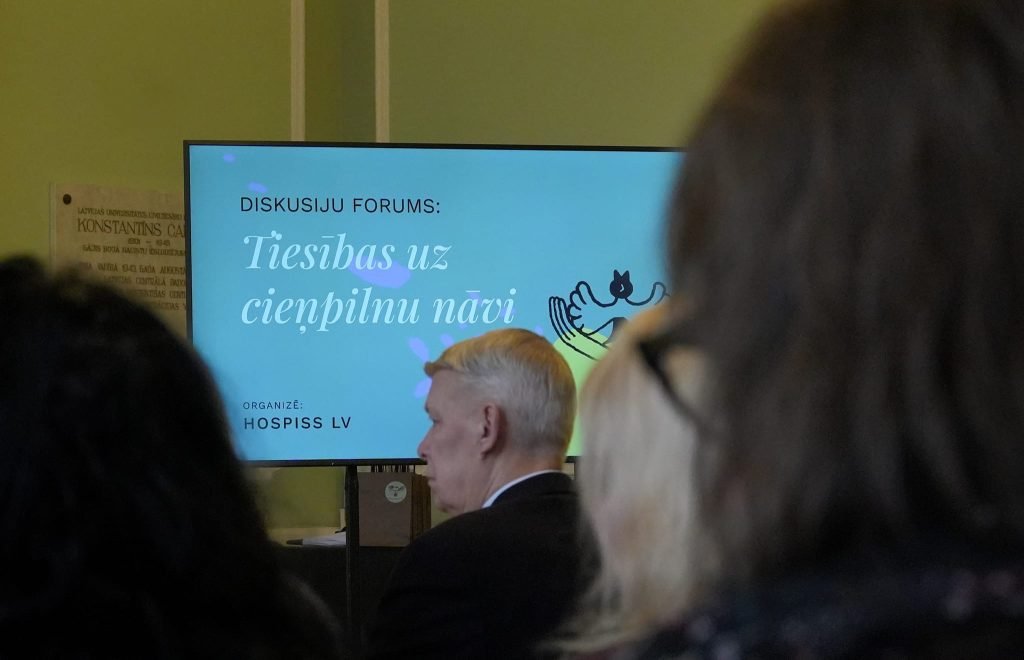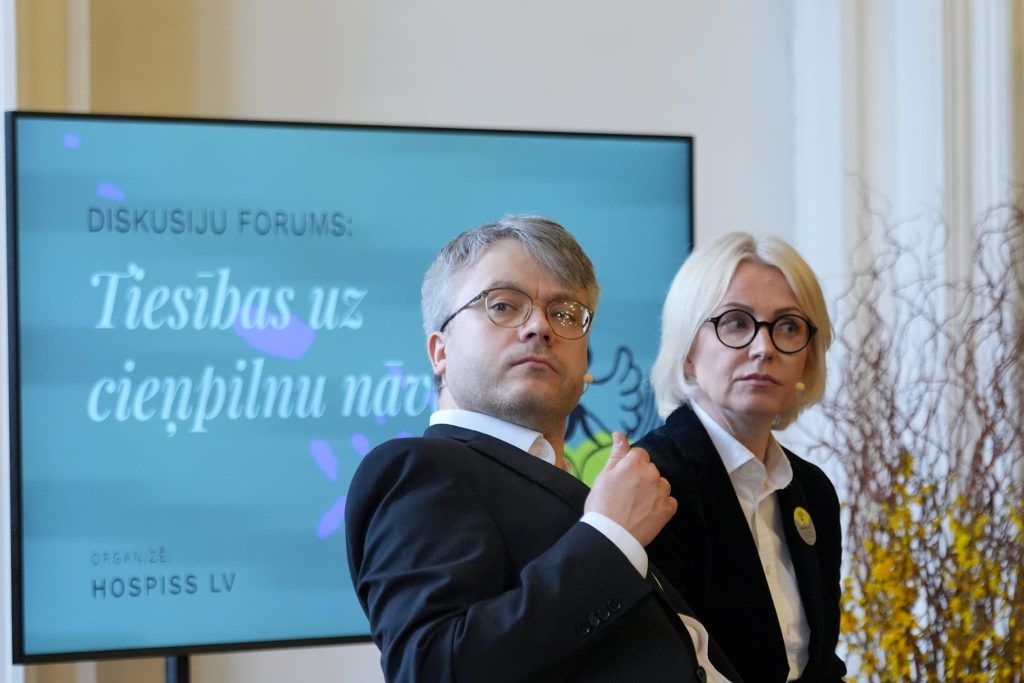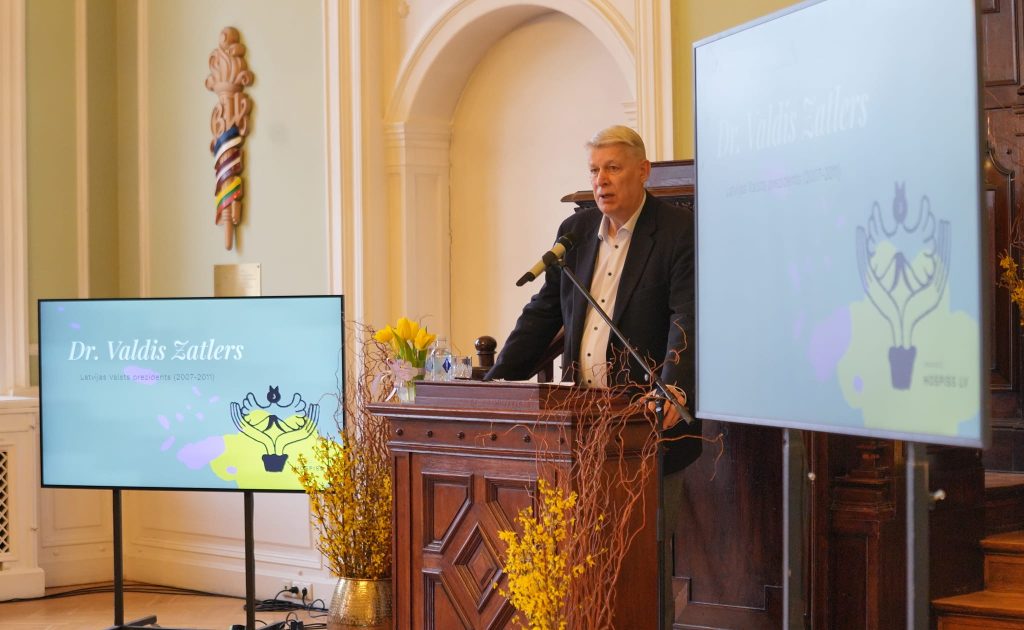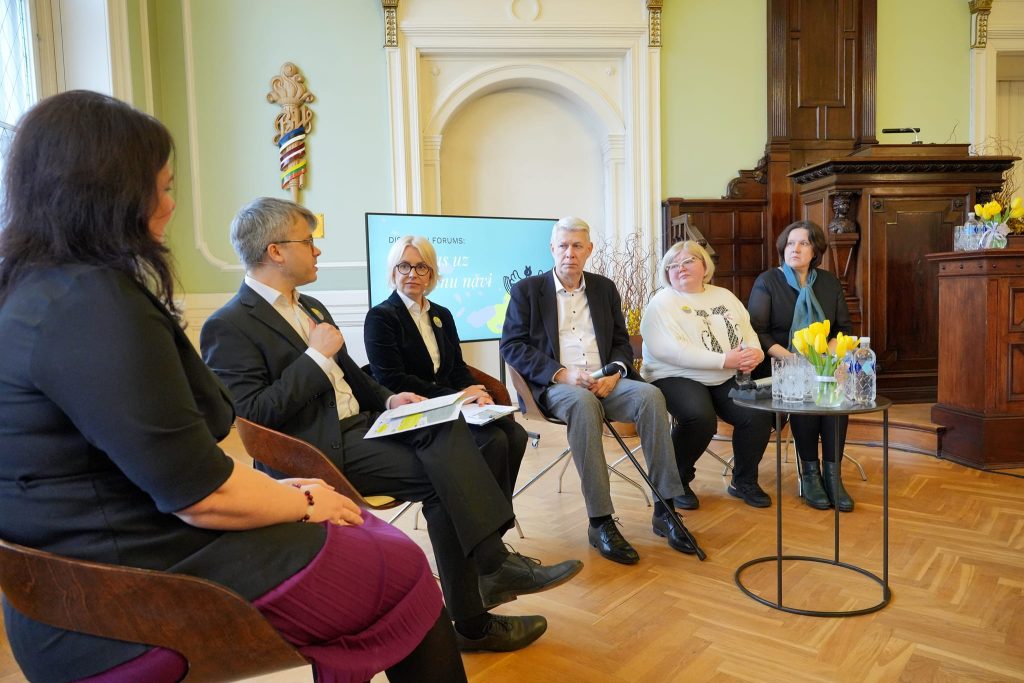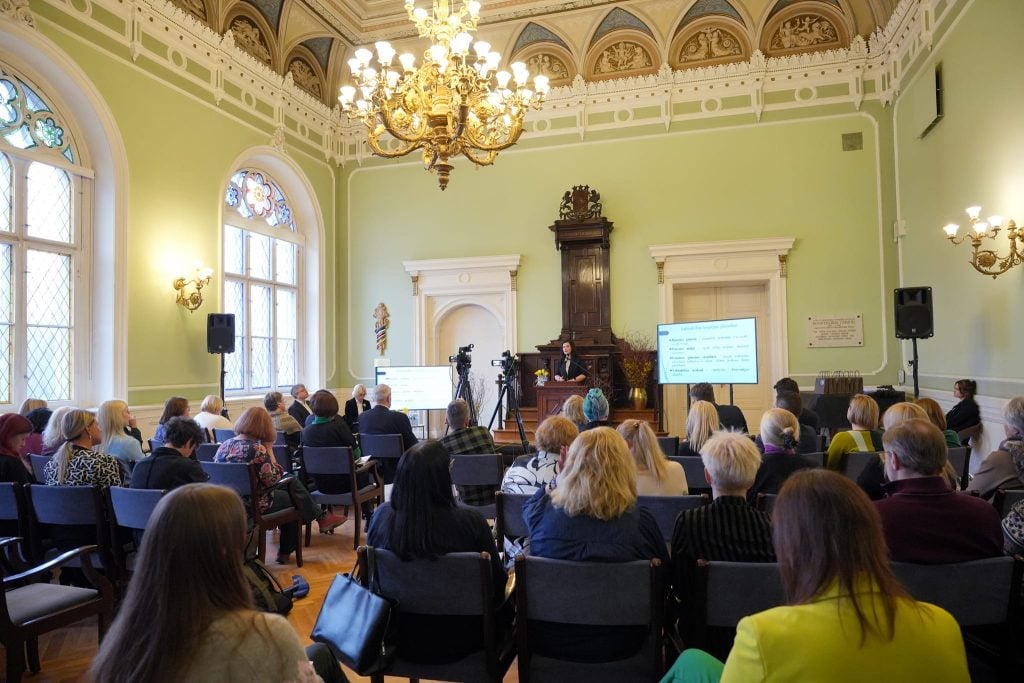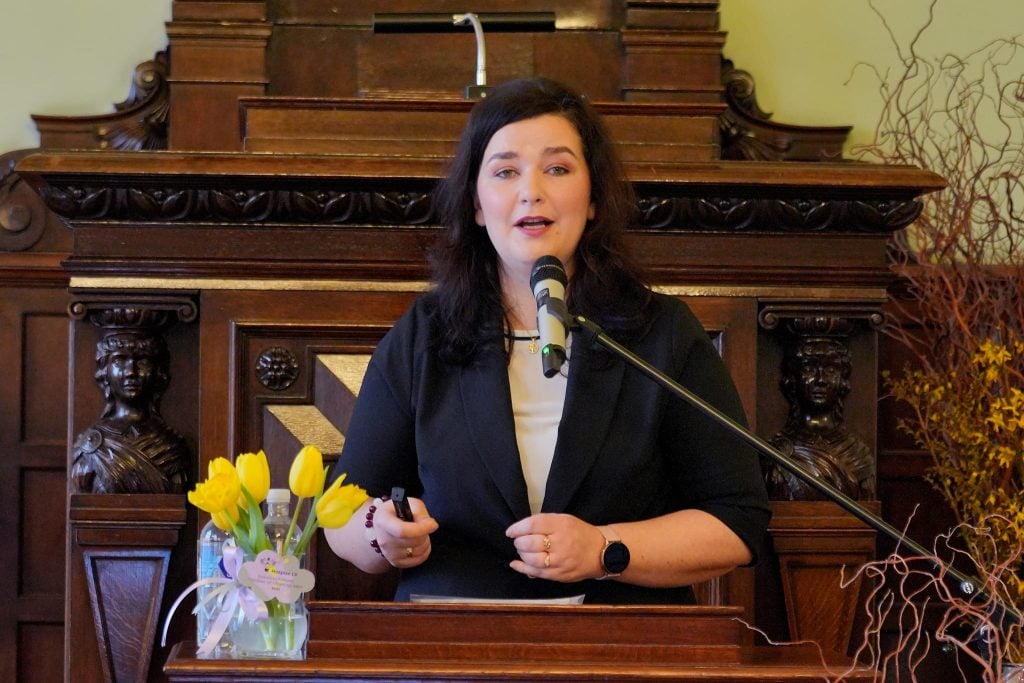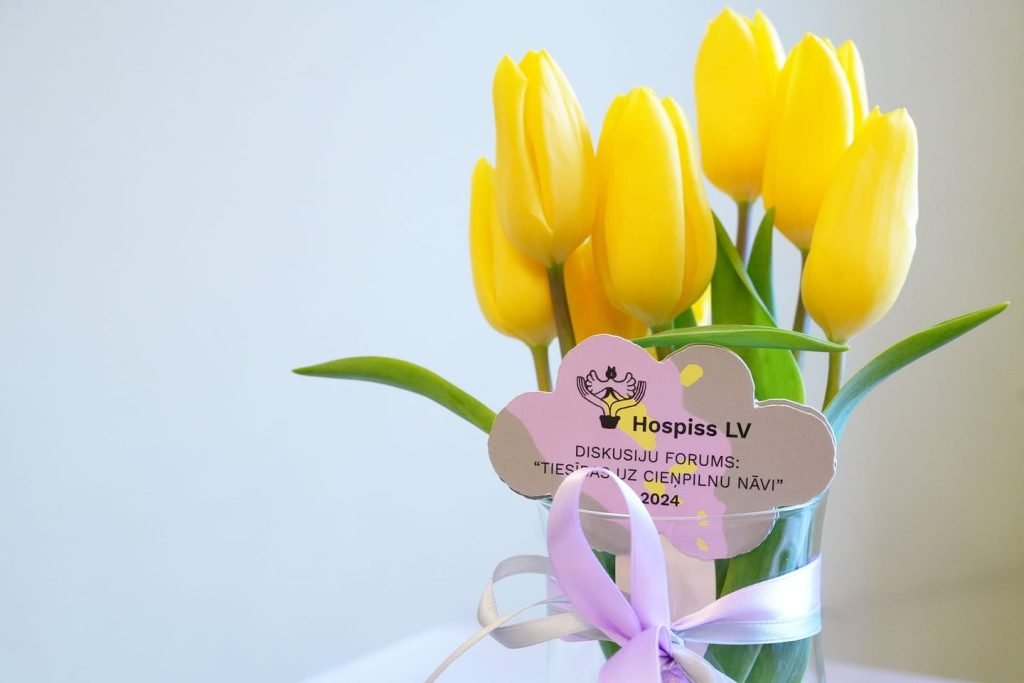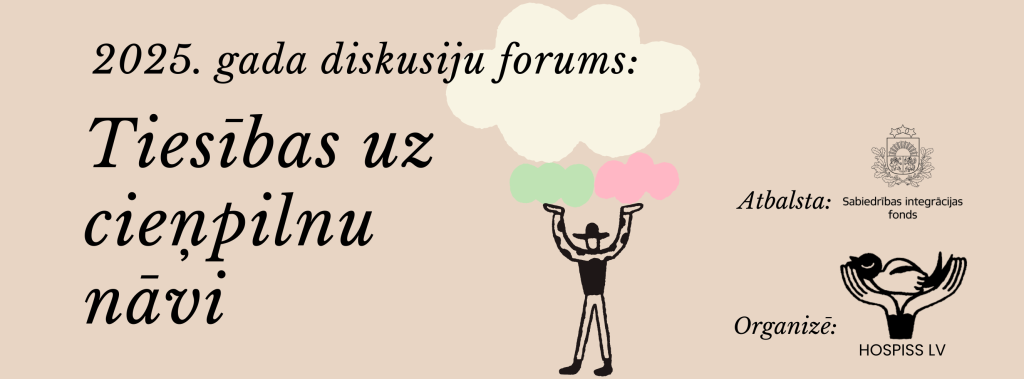"Last year, with great concern, we organized the first discussion forum "Rights to a Dignified Death," and our main concern as organizers was to do everything democratically possible to finally introduce hospice care services in Latvia. And from January 1 of this year, one of the elements of hospice care system - the mobile team service for hospice patients at their place of residence - must be provided throughout Latvia. The other two system elements, long-term hospice care at the patient's place of residence and availability of hospice stationary care, are still missing," said Ilze Zosule, co-founder of "Hospiss LV," indicating that it is not enough to introduce just one hospice service to make the hospice care system in Latvia compliant with world standards and to eliminate fear of death.
"Last year, with great concern, we organized the first discussion forum "Rights to a Dignified Death," and our main concern as organizers was to do everything democratically possible to finally introduce hospice care services in Latvia. And from January 1 of this year, one of the elements of hospice care system - the mobile team service for hospice patients at their place of residence - must be provided throughout Latvia. The other two system elements, long-term hospice care at the patient's place of residence and availability of hospice stationary care, are still missing," said Ilze Zosule, co-founder of "Hospiss LV," indicating that it is not enough to introduce just one hospice service to make the hospice care system in Latvia compliant with world standards and to eliminate fear of death.
Doctor and former President of Latvia Valdis Zatlers emphasized in the forum that the duty of hospice care service is to provide the opportunity to enjoy the final stage of life, not to wait for death. He, sharing his professional and life experience, revealed that when a person is not in contact with life, death occurs much faster. The most valuable assistance in the final stage of life is conversation with people. "I have been suffering from pain regularly for 12 years. Now, talking to you, I do not feel pain because I am in contact with you, but when I sit back in my chair, the pain will return," explained Zatlers. He admitted that no one from the outside can assess another's pain and suffering. In Zatlers' view, life is a mystery and there is no need to seek rationality in it. Death is with a person from the moment of birth, and no one knows when it will occur. "Death is not suffering. Death is a moment. Suffering is during life," explained the doctor. Zatlers also shared his observations that people over 90 often make a conscious decision to depart from life by stopping eating and dying within a week.
Doctor Līga Keiša-Ķirse from the Palliative Care Department of Riga East Clinical University Hospital confirmed Zatlers' recommendation that the most important thing in palliative care is talking to sick people. However, she admitted that often neither the medical staff nor the relatives know how to communicate with severely ill patients. She also explained that a person receiving palliative care will not recover, but their disease symptoms will be reduced.
On the other hand, Doctor of Philosophy Agita Misāne presented the results of a three-year study conducted at RSU on what constitutes a "good death" for Latvians. It was concluded that death is a "family matter." Latvian residents consider a "good death" to be death without pain and suffering, death in sleep, sudden death, death at home. Similarly, people expressed a desire to die in the presence of relatives, and a small number of respondents wanted to retain control over what was happening to them. Only 2.5% of men without families and who are not religious are willing to die as heroes. Few people admitted that they would like to die while performing their work duties, while a larger number of people would choose death at a happy moment in life.
Misāne revealed that when asked what assistance dying people and their relatives would have needed, the study participants clearly expressed the need for material assistance, namely, discounts for purchasing medication and hygiene products, financial resources for pain relief, hiring a professional caregiver. However, relatives would also like psychological assistance, employer-granted leave or hours for the caregiver.
Although people know how to prepare for death, they do not do it. Latvian respondents revealed that it is not important for them to ask for forgiveness before death, resolve conflicts and misunderstandings, settle debts. In individual interviews, study participants revealed that they highly value the opportunity to be together and talk to their loved ones in the last hours of life.
The forum also discussed another aspect of death, namely, the patient's rights to die with dignity, rather than continuing to receive futile treatment in intensive care. As indicated by medical professionals, technology already allows postponing death. "How far are we going with the development of this technology, how long are we treating these people with organ replacement therapies? Do we take into account their and their relatives' values, whether they would like to continue this very, very intensive treatment, which in today's technocratic conditions means that we can go on indefinitely," pointed out Iveta Golubovska, President of the Latvian Association of Anesthesiologists and Intensive Care Specialists.
The forum also featured speeches by Tatjana Jirgensone, representative of the social enterprise "Hospiss Māja," bioethics expert Signe Mežinska, LU tenured professor Raivis Bičevskis, and contemplation teacher Georgs Rubenis.
To view the recording of the forum:
https://www.facebook.com/HospissLV/videos/2247214962337078
The forum was financially supported by the Society Integration Fund from the Latvian state budget.
Thanks also to other sponsors: the University of Latvia, Baltic Restaurans Latvia, Bante flower salon, Kalve Cofee, Water 855, Digifix, Be Event prezentreklāma.
Photo by Evija Tarifanova
